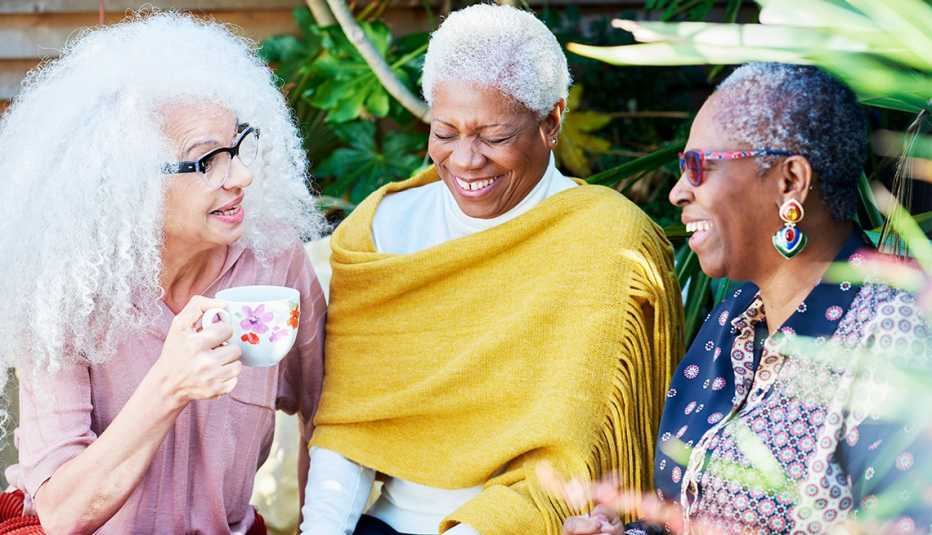AARP Hearing Center


When her father died, Margarite Avendano found herself “a little bit alone” after tending to him full time as his health declined.
As a caretaker, she says, “you kind of hide yourself. There’s a stigma. You become more isolated.”
So after his death, she decided to work on her own health — by making new friends. She joined an online companionship community and started going to the Y.
“I was so shy at first, but slowly I found people of similar ages and with similar interests,” says Avendano, who describes herself as being in her 70s and lives in San Mateo, California. She made friends who get together to go hiking, dancing and to dinner and the movies.
Friends help reduces stress and fatigue
Soon she noticed that she’d gotten “more alert and focused. I became healthier and more conscious of everything I did, because there was a reason to get up every morning and to get out and have fun and move.”
Avendano is not imagining these positive effects. A recent study of older adults, published in 2023 in the journal Socius: Sociological Research for a Dynamic World, finds that even momentary social interactions with friends reduce fatigue and stress. It follows a wealth of earlier research showing that friendships later in life can reduce a person’s risk of dementia, depression, physical decline and more.
“There are a lot of sneaky things that happen when you’re socializing that you don’t even think about,” says Bryan James, an epidemiologist at the Rush Alzheimer’s Disease Center in Chicago and one of the most prolific investigators of this topic. “You’re actually being physically active, going to a museum together, or just on a walk, and engaging with the world around you.”
Conversations with friends can also exercise the brain, James says.
“It cognitively stimulates you. You have to remember people. You have to remember people’s names. These things activate parts of your brain that aren’t activated when you’re sitting on your couch.”
An epidemic of loneliness
The aforementioned findings come in the wake of a 2023 report by the U.S. surgeon general warning of “an epidemic” of loneliness and isolation in the country. Even before COVID-19, Surgeon General Vivek Murthy said half of American adults reported experiencing loneliness — a condition Murthy said is worse for their health than obesity, physical inactivity or smoking up to 15 cigarettes per day.
That’s a particular concern for older people, says Alyssa Goldman, a sociologist at Boston College and coauthor of the 2023 study of how even short interactions with friends can help.
Among adults 50-plus, 1 in 4 say they feel isolated at least some of the time, and 1 in 3 lack regular companionship, according to another pre-pandemic survey, by the University of Michigan Institute for Healthcare Policy and Innovation.
As part of their research, Goldman and Cornell sociologist Erin York Cornwell asked older adults to take brief surveys on their smartphones five times a day asking who they were with and how they felt. Those in the company of non-family-member friends and neighbors were significantly less likely to experience fatigue or stress.





































































More From AARP
25 Great Ways to Be a Better Friend
We asked for advice on how to strengthen friendships from relationship authors — here’s what they said
13 Free or Low-Cost Ways You Can Cope With Loneliness
As we age, social connections key to health, happiness
Feeling Lonely? 7 Ways to Make Friends Right Now
The pandemic shrank social circles, but it might be time to rekindle connections